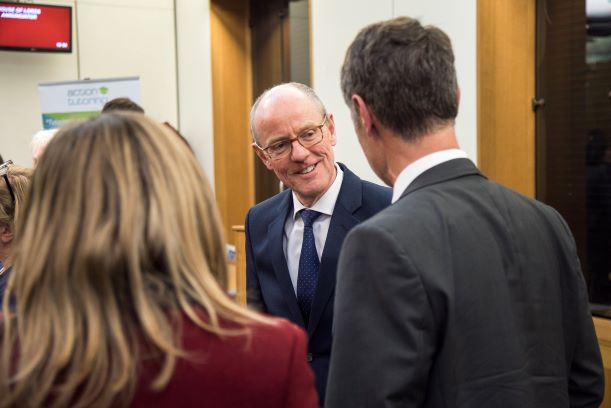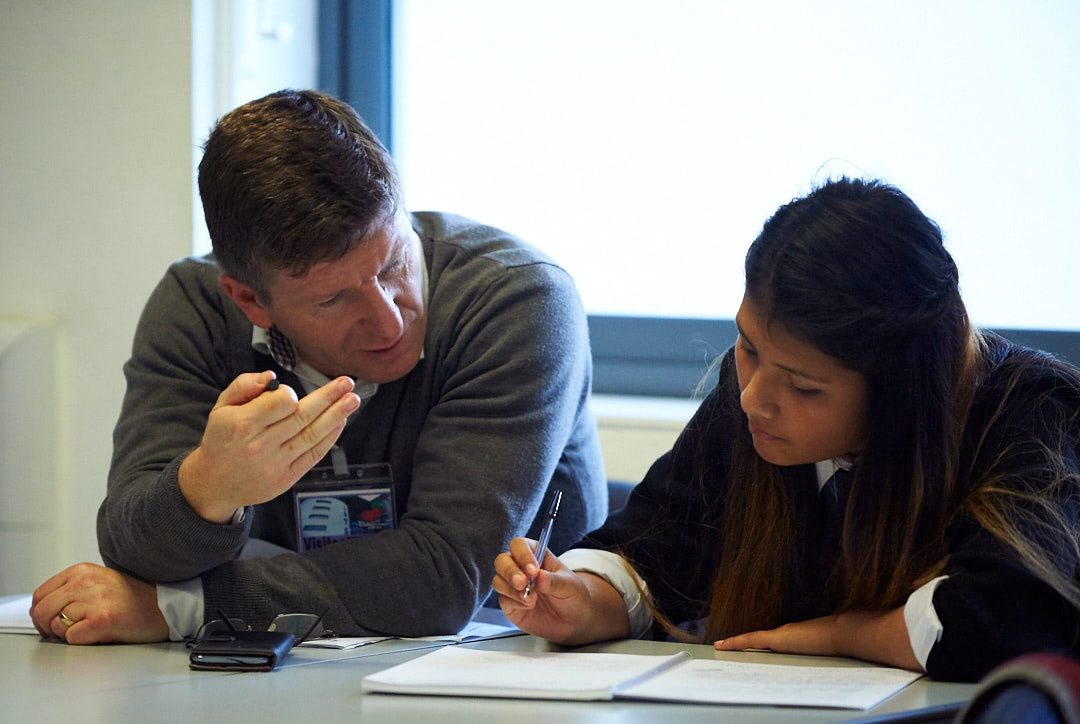The academic attainment gap doesn’t have to be a reality

Education charity’s report shows, “it is possible to close the attainment gap and its vision is one that I fully endorse” Rt Hon Nick Gibb MP, Minister of State for School Standards
This week, Monday 4th March, education charity Action Tutoring launched its 2017-18 Impact Report at Portcullis House, Westminster. Hosted by Helen Hayes, MP for Dulwich and West Norwood, the 120 guests in attendance, including Rt Hon Nick Gibb MP, Minister of State for School Standards, learned of Action Tutoring’s impressive impact on the pass rates of thousands of disadvantaged young people supported by the programme.
Action Tutoring provides high-quality tutoring support, delivered entirely by volunteers, to help disadvantaged primary and secondary school pupils to reach their potential.
Their report shows that last year disadvantaged secondary school pupils tutored by Action Tutoring were able to match the national GCSE pass rate, after the equivalent of just two terms of weekly tutoring. This is despite the pass-rate for disadvantaged pupils tending to fall 15-20% behind the overall national figures, in English Language and maths GCSEs respectively.
Recent analysis carried out by the charity Impetus-PEF revealed what wider impact provisions like Action Tutoring could have on the academic attainment gap, if their reach could be extended to benefit more pupils.
The research found that the attainment gap between disadvantaged young people and their better off peers could be halved if just 19,000 young people – fewer than the number of secondary school pupils in Manchester – passed a single GCSE.
Currently just 44.3% of young people eligible for Pupil Premium funding (additional government funding allocated to raise the attainment of disadvantaged pupils) achieved passes in GCSE English and maths last year, compared to 71.1% of their better off peers. Recent research has shown that the attainment gap could take as much as 50 years to close at the current rate of progress.1
Using data from a Freedom of Information (FoI) request made by Action Tutoring, Impetus-PEF’s analysis shows that last year 19,000 disadvantaged young people achieved a pass in one of either English or maths – meaning they are just one GCSE away from meeting the government target to pass both. If these 19,000 young people had received the support to pass in the other subject, the overall success rate would increase to 57.7%, halving the attainment gap in a stroke.
At the launch Rt Hon Nick Gibb MP, shared his support for the charity,
“this Impact Report shows that it is possible to close the attainment gap and Action Tutoring has had huge success raising attainment. The pupils are proof that regardless of your circumstances it is possible to get crucial English and maths qualifications. Action Tutoring offers a practical, structured solution. Action Tutoring’s vision is one that I fully endorse.” He also remarked on the “huge potential for more volunteers to use their knowledge and experience in this way to support young people”.
Helen Hayes, MP for Dulwich and West Norwood, who hosted the event and visited an Action Tutoring programme last year, remarked,
“the motivation of pupils, particularly from disadvantaged backgrounds to engage in education has never been more important”. Reflecting on the recent rise in knife crime affecting young people around the country, Ms Hayes said that “the work [of Action Tutoring] plays a significant role in helping pupils to remain engaged in education for longer”, ultimately improving the life outcomes of the young people involved and bringing benefits to the wider economy and society.
Andy Ratcliffe Impetus-PEF CEO, said:
“It’s easy to assume that the young people from disadvantaged backgrounds will always do worse in their exams. The gap in educational attainment has been around for so long, and is closing so slowly, that it can feel inevitable. But it doesn’t need to be. Our analysis shows that if 19,000 young people from disadvantaged backgrounds get the support they need to pass one more GCSE it would halve the gap. That works out at fewer than six pupils per secondary school.”
Susannah Hardyman, Action Tutoring CEO, said:
“Tutoring can transform the lives of disadvantaged young people by helping them pass English and maths GCSEs – qualifications that are essential for them to progress in life. This new analysis is a reminder of how much can be achieved with effective support and how charities like Action Tutoring can play an even bigger role in closing the gap between those who are facing socio-economic disadvantage and those who are not. We recognise the power of tuition and want to ensure that all pupils who could benefit from it do. Our inspirational volunteer tutors give their time for free to help make this a reality.”

1 Based on Closing the Gap?, EPI, Aug 2017
The data in this release is based on a FoI request.
Last year, 44.3% of 143,586 disadvantaged young people achieved passes (9-4) in English and maths, a total of 63,609. The pass rate for non-disadvantaged young people was 71.1%. These figures are based on the DfE’s annual release of GCSE results by pupil characteristics, and cover 2016/17. New figures will were published on Thursday 24 January 2019 (covering 2017/18) and Impetus-PEF are available to comment.
The FoI request reveals that there were 136,857 entries into GCSE maths by disadvantaged young people last year, of which 53.2% were passes, a total of 72,812. Taking away the number who passed both English and maths leaves 9,203 people passing maths but not English.
Similarly, the FoI request reveals that there were 136,112 entries into GCSE English by disadvantaged young people last year, of which 54.2% were passes, a total of 73,754. Taking away the number who passed both English and maths leaves 10,145 people passing English but not maths.
Adding these two groups together gives 19,348. This is in fact a slight underestimate, as there will probably be a small number of young people passing English Literature and not English (or maths), who haven’t been included in this analysis. (A pass in either English or English Literature can be counted towards the English and maths combined measure).
If the additional 19,348 young people passed both English and maths, the number passing would increase from 63,609 to 82,957, a pass rate of 57.8%. This would be an increase of 13.5 %pts on the current figure, leaving a gap of 13.3 %pts to the 71.1% pass rate achieved by non-disadvantaged young people.
Last year Action Tutoring supported nearly 2,500 pupils with its intervention, enabled by 1,100 inspiring volunteer tutors and working in partnership with 80 schools across the country. Action Tutoring currently operates in Birmingham, Bristol, Liverpool, London, Newcastle, Sheffield and Sussex with plans to expand to Nottingham this autumn.











Responses